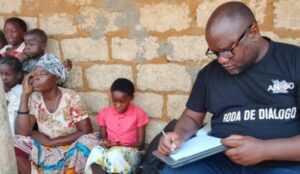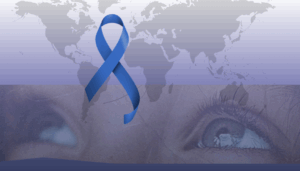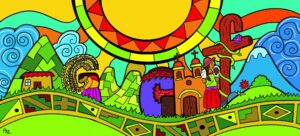Today, as we celebrate 104 years since Aguchita was born on June 13, 1920, we come to the end of our six weeks of reflections on how her life and ministry echoed each of the six areas of intervention for the Congregation – long before they were defined in our Position Papers. This week, we reflect on Aguchita’s approach to migration and its consequent injustices.
During her lifetime – as today – migration was rooted within a broader social, political, economic, and theological context. In the following excerpt, adapted from the book Aguchita: Mercy and Justice, we read how for those facing conditions of poverty, food insecurity, degraded environment, natural disasters, armed conflict, inhumane labor conditions, rights violations, or grossly ineffective government, migration can be a means to attain freedom and survival, to establish better social and economic opportunities.
From 1960 onwards, oil exploration began, causing the demand for land concessions and conflict over the land. In some cases, settlers came together to form cooperatives, and in others, they sought the land to be privatized for commercial purposes. However, the existing estates sought more workers, who were brought in from various places “like herded sheep.” They came under the false promise of obtaining land and securing a better future, which was not always the case. This situation exacerbated the sense of injustice and served as a breeding ground for the discontent that violent groups later used to justify their actions.
The Congregation’s position on migration stresses that all people, regardless of migratory status, are rights holders whose protection is a moral imperative and that the rights of migrant spouses and children merit prominent consideration.
Yesterday’s (June 12) World Day Against Child Labor highlighted the ongoing issue of nearly 1 in 10 children worldwide being subjected to child labor, a scourge particularly affecting marginalized communities like migrants.
As a Congregation, one such program where we work to support migrant families and put an end to child labor is at the Bon Pasteur Centre in Kolwezi, Democratic Republic of Congo.
Similar to the exploitation that occurred with the oil industry in 1960’s Peru, global demand for Cobalt today has caused untold hardship for transient and permanent communities around Kolwezi – the site of one of the largest cobalt and copper deposits in the world.
With the support of Good Shepherd International Foundation, our seven sisters and 95 partners-in-mission work to offer approximately 1,000 children from the surrounding area – many of whom had been forced “like herded sheep” to work in the cobalt mines – a safe and supportive space where they can learn, grow and thrive.
Aguchita volunteered to go and serve among the communities in La Florida – a new settlement where migrants had arrived for work. In the process of supporting these communities, she sacrificed her own life and liberty by her untimely death at the hands of a terrorist group. Although the armed conflict had worried her, she remained calm because the important thing for her was to be with her flock.
Does your migrant heart call you to serve girls, women, and children in need, risking everything for mission? Reach out to your local vocation director or email vocations@gssweb.org to talk to us about how you can explore your vocation.







